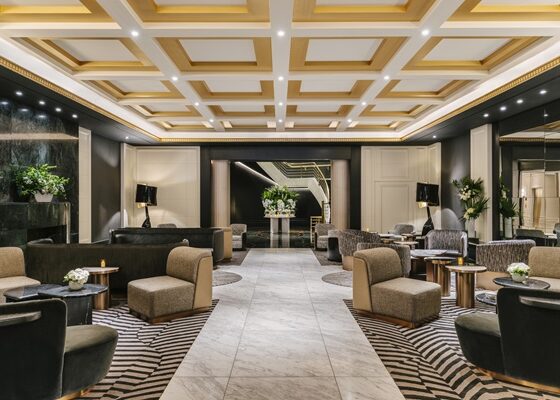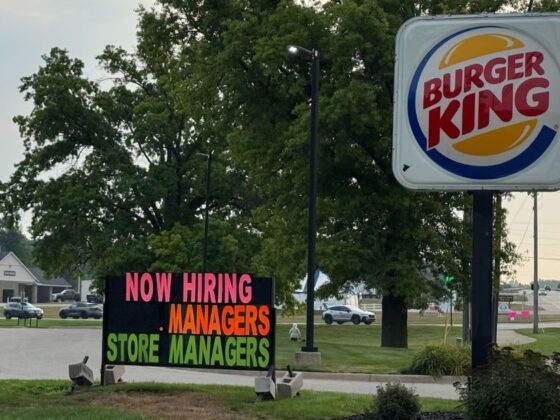
Guests used to tell us when something went wrong. They complained at the desk. They called from the room. They filled out comment cards with neat handwriting and detailed grievances. Even if the stay was less than perfect, they gave the hotel a fair chance to fix it before passing judgment. That era is over. Something fundamental has shifted not loudly, but silently, and most hotels still haven’t caught up.
Today’s guests don’t complain. They defect. And they do it quietly.
This is the most dangerous trend in hospitality right now: the rise of silent dissatisfaction, shaped by a new kind of expectation one built not by hotels, but by AI-driven experiences in every other aspect of a guest’s life. While hotels continue measuring satisfaction the way they always have, guests are making decisions based on a completely different internal scale.
If you want to understand the modern traveler, you have to stop thinking about what they say and start thinking about what they expect. Because in 2025, the hotel’s biggest enemy isn’t bad reviews, it’s the lack of reviews. It’s the guest who leaves, says nothing, and never comes back.
This is the guest we need to talk about.
The Hidden Shift: AI Has Rewired What “Good Service” Means
The average traveler today interacts with more AI-driven services than human ones. Their shopping is personalized without asking. Their entertainment predicts their preferences without prompting. Their apps respond instantly, anticipate needs, and reduce effort at every turn.
Guests didn’t wake up one morning expecting hotels to behave this way. But the rest of the world trained them to. AI has quietly rewritten the rules of convenience, and hotels are now judged against a new, invisible benchmark.
This benchmark is built on several psychological shifts:
Guests expect instant responses because everything else responds instantly.
If a banking chatbot answers a complex question in seconds, waiting 7 minutes for a WhatsApp reply from the hotel feels like an operational failure even if it’s within your “acceptable” response window.
Guests expect proactive service because AI predicts what they want elsewhere.
When Spotify, Netflix, Amazon, and Google anticipate needs without being asked, the expectation transfers: “You should know I need towels before I call. You should know my room key won’t work before I walk back down. You should know check-in will be busy and adjust staffing.”
Guests expect seamless handoffs because AI-driven systems rarely drop the ball.
When one human says something and another contradicts it, the inconsistency feels bigger than it would have 10 years ago. AI rarely contradicts itself. Guests now expect the same from humans.
Guests expect personalization because they are used to being recognized digitally.
They don’t need a grand gesture. They need emotional relevance. A correct greeting. A familiar preference. A sense that the stay is built around them—not around hotel processes.
Guests expect autonomy because smart tech empowers independence.
They want to check in early if possible, check out late if needed, adjust their room, request service, or solve small problems without waiting for someone to assist.
None of these expectations was created by hotels. But hotels are being measured by them—harshly and often unfairly. And because guests rarely speak up when expectations aren’t met, the damage happens underground, unseen, and irreversible.
The New Danger: Silence Has Become the New Complaint
A guest who says nothing used to be a guest who was satisfied. In 2025, a guest who says nothing is a guest you are likely losing.
Why? Because complaining feels like work.
The modern traveler is conditioned to avoid unnecessary effort. Filing a complaint, explaining a problem, confronting staff, or taking extra steps to fix something feels like emotional labor—and emotional labor is the very thing travelers are now trying to escape.
AI has taught them that problems should be solved automatically. When they’re not, guests don’t feel angry; they feel tired. And tired guests disengage.
They don’t call the desk. They don’t leave bad reviews. They don’t demand refunds. They simply disappear from your future booking data.
If you’ve noticed:
- Repeat guests dropping
- The direct booking share is shrinking
- More guests are returning to OTAs
- Reputation scores plateauing despite “good service”
- Loyalty program participation is stagnating
These are symptoms of silent defection.
The guest is not upset enough to punish you publicly. They simply do not feel compelled to return.
And because this exit happens without a word, hotels make the false assumption that everything is fine. But the absence of complaints is not the presence of satisfaction. It is merely the absence of friction severe enough to voice but still severe enough to break loyalty.
Where Loyalty Dies: The Small, Invisible Moments Guests Don’t Tell You About
The most impactful problems in hospitality are rarely the big ones. They are the dozens of micro-moments where staying at your hotel feels just slightly harder than it should. These micro-frictions accumulate quietly, like grains of sand. None of them seems dangerous on their own, but together they form a psychological weight.
Here are the types of friction that destroy loyalty without ever showing up in a complaint log:
The Line That Shouldn’t Exist
A six-minute check-in line feels acceptable to the hotel. But to a guest accustomed to mobile-first everything, it feels like wasted life.
The Early Morning Knock
Housekeeping knocking at 8:15 AM is not reportable. But it shatters the emotional tone of the day.
The Ambiguous Wait at the Restaurant
Guests tolerate delays; they do not tolerate uncertainty. When no one communicates timing, trust erodes invisibly.
The Wi-Fi That Works… Except in Certain Rooms
No one calls to complain. They just rebooked somewhere else.
The Thermostat That Pretends to Cool
Few guests report AC issues unless catastrophic. But they absolutely remember discomfort.
The Inconsistent Greeting Energy
Hospitality doesn’t lose guests due to rudeness. It loses them due to inconsistency. Guests expect the same level of warmth every time.
The OTA Guest Who Feels Like a Second-Class Citizen
Hotels don’t intend to deliver two-tiered experiences, but guests sense it instantly.
The “Technically Clean” but Emotionally Dirty Room
That one smudges. That hair. That dusty corner. Not enough to speak up about, but more than enough to feel uneasy.
The Checkout Queue That Ends the Stay on a Low
Guests remember the emotional last note of their stay. If it’s friction, loyalty drops.
Each one seems trivial. Each one seems too small to worry about. But these are the quiet cracks through which repeat business escapes.
Why Hotels Miss the Problem: They’re Measuring the Wrong Signals
Hotels track reviews, surveys, complaint logs, and reputation scores. These tools are built to measure dissatisfaction, not friction. They only surface problems that guests choose to articulate. But modern guests articulate very little.
If you ask a guest whether their stay was “fine,” they will often say yes. But “fine” is the enemy. “Fine” means the stay met the minimum expectations but did not feel effortless. “Fine” means the guest has no emotional connection to your hotel. “Fine” means they will book the competitor next time with zero guilt.
Reviews might look good. Surveys might show high percentages. Staff might believe they are doing well. But repeat business tells a different story.
To diagnose the modern guest experience properly, hotels must pay attention to:
- Repeat booking rate
- Direct channel retention
- Brand-switching behavior
- Booking frequency drops
- OTA migration patterns
- Message response analytics
- Operational delays
- Room readiness consistency
- Housekeeping variances
- Peak-time bottlenecks
These metrics don’t measure satisfaction; they measure friction. And friction is what truly predicts revenue.
The Emotional Psychology Behind Guest Expectations in the AI Age
Consumers are now subconsciously trained to detect and resent friction. Not because they’re more entitled, but because AI-driven design has reduced friction everywhere else. This changes how guests experience the smallest inconvenience.
Three psychological effects explain this shift:
1. The “Comparative Benchmark” Effect
Guests don’t compare your service to other hotels. They compare it to the digital world. Waiting feels worse when waiting rarely happens elsewhere.
2. The “Cognitive Load” Effect
If a process requires thinking—navigation, guessing, repeating, asking—it becomes emotionally costly. AI interactions often eliminate cognitive load, so hotels feel mentally heavy by comparison.
3. The “Expectation Transfer” Effect
When an AI tool anticipates a need, the brain adopts that anticipation as normal. So when a hotel fails to anticipate something basic, it feels like negligence even if it’s standard procedure.
These effects operate under the surface. Guests don’t articulate them. But they feel them. Feelings, not opinions, drive loyalty.
The Hotels That Win Are the Ones That Make the Stay Feel Effortless
The new competitive advantage in hospitality is simplicity. Not luxury. Not technology. Not bigger lobbies or trendier designs. Ease.
Ease is the new loyalty. Ease is the new luxury. Ease is the new direct booking engine.
The hotels outperforming their comp sets right now share one trait: they design the entire guest journey around the elimination of unnecessary effort.
They ask questions like:
- Where does the guest wait?
- Where do they repeat information?
- Where might they feel confused?
- Where do we create micro-delays?
- Where does staff inconsistency show up?
- Where do our digital channels slow down?
- Where do we make guests think harder than they should?
Solving these questions produces more revenue growth than a marketing campaign because it improves the emotional memory of the stay.
The AI Connection: How Smart Hotels Use Technology to Reduce Human Effort, Not Replace It
Forward-thinking hotels aren’t using AI to replace staff; they are using it to empower them. The best operators use AI to detect patterns that humans miss, spot friction before guests feel it, and automate communication so staff can focus on warmth and hospitality.
A few examples:
- AI flags response-time drops and reroutes messages.
- AI detects review sentiment patterns before scores fall.
- AI identifies housekeeping inconsistencies by room type or floor.
- AI predicts busy check-in windows and recommends staffing shifts.
- AI drafts personalized pre-arrival messages in seconds.
- AI highlights operational delays that correlate with repeat guest loss.
- AI automates routine answers so staff can focus on high-value interactions.
The goal isn’t to create an AI-powered hotel. The goal is to create a hotel where humans spend less time solving avoidable problems and more time connecting with guests.
When AI handles predictability, humans can handle warmth.
The Turning Point: One Question Every Hotel Should Ask
Whenever I consult a property, I ask one question that reveals more about their guest experience than any survey:
Where are we forcing guests to work harder than they should?
Every point of unnecessary effort is a point of emotional friction. And every point of friction weakens loyalty.
When hotels stop designing operations around internal convenience and start designing them around emotional ease, everything changes. Reviews improve naturally. Staff stress declines. Guests rebook. Direct channels grow. Loyalty strengthens. Revenue stabilizes. And the hotel feels alive again.
This is not a dramatic transformation. It is a quiet one—made of hundreds of small, intelligent choices.
The Future of Hospitality Belongs to Hotels That Remove Friction Before Guests Feel It
The hospitality industry is standing at a crossroads. One path tries to preserve old systems, old definitions of service, and old assumptions about guest satisfaction. The other path recognizes that guests have changed, technology has changed, and the definition of “effortless” has evolved beyond recognition.
The hotels that choose the second path will own the next decade. They will outperform without spending more, delight without extravagance, and grow loyalty without gimmicks. Not because they dazzle guests with grand gestures, but because they eliminate the tiny frustrations that erode trust.
In a world full of noise, hotels that feel effortless will always win. Guests aren’t searching for perfection. They’re searching for emotional relief. And the hotel that delivers a stay free of friction will be the one they return to, talk about, and book directly again and again.
The guests who complain are not the threat. The guests who stay silent are. And the hotels that learn to listen to silence will dominate the future of hospitality.




